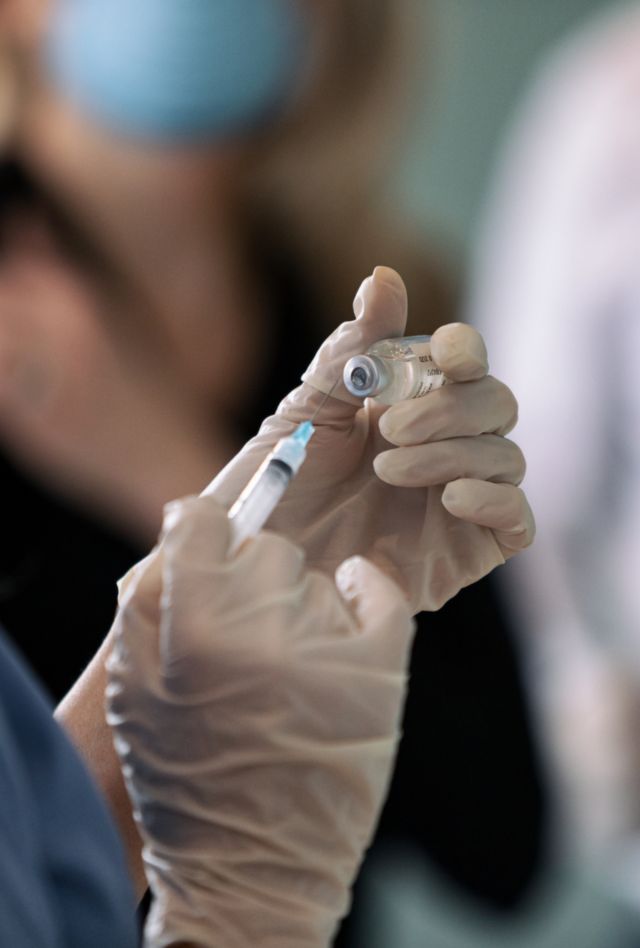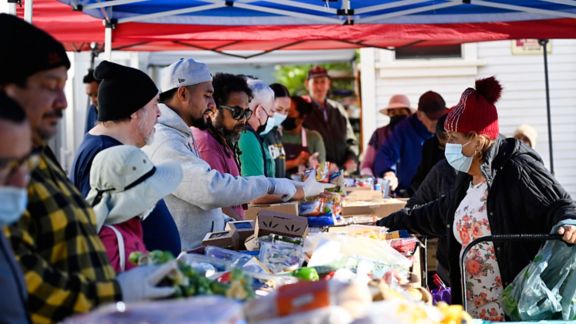National Immunization Surveys (NIS)

Problem
Tracking immunization rates is critical for effective public health measures.
In response to the 1989-1991 measles epidemic, the Clinton administration launched the Children’s Immunization Initiative (1993) to ensure that children were immunized according to Centers for Disease Control and Prevention (CDC) guidelines. In 1994, the CDC’s National Center for Immunization and Respiratory Diseases (NCIRD) began conducting the National Immunization Surveys (NIS), a phone survey to assess vaccine coverage among children. As the number of effective vaccines has grown and the immunization schedule has become longer and more complex, the need for accurate and timely immunization data has only become more important.
Solution
NORC has maintained high data quality, even as the surveys expanded and evolved.
Since NORC took over data collection in 2005, the National Immunization Surveys (NIS) have become the largest telephone surveys in the nation. The NIS comprises five surveys. The original, NIS-Child, was followed by the NIS-Teen in 2006 and the NIS-Flu in 2009 to provide weekly estimates of flu vaccination rates for children. In 2021, the surveys were again expanded to include COVID-19 vaccinations for adults and children.
NORC employs an extra step in the family of surveys to ensure the best quality data. First, we call households to identify children in the right age group and ask the parent or guardian for consent to contact their child’s vaccination provider. Because parental report is difficult to obtain and less accurate than a report from the child's provider, we then send the Immunization History Questionnaire directly to the provider to obtain a lifetime history of vaccination. That first telephone survey serves all five parts of the NIS, as households are asked about vaccinations from childhood up through those for COVID-19.
Throughout our tenure, we managed to ensure consistent data quality even as we navigated the transition from a traditional landline phone survey to a hybrid landline-cell phone model and finally to the current cell phone-only survey. We achieved this consistency through sophisticated statistical modeling and a massive effort. The NIS is the largest telephone survey in the nation; in 2023, NORC placed calls to 29 million phone numbers.
Result
The NIS provides a critical metric of the nation’s health.
Armed with NIS data, policymakers, community leaders, and public health officials track childhood immunizations, identify issues, and better ensure that vulnerable populations are protected against preventable diseases, including polio, mumps, measles, rubella, whooping cough, diphtheria, tetanus, hepatitis A, hepatitis, B, pneumococcal, rotavirus, chickenpox, influenza, and RSV.
The annual NIS-Child Results and NIS-Teen Results are released in the spring of each year. The COVID-19 and influenza surveys are continuous and reported weekly to provide real-time estimates based on the survey data itself, and also combined with other administrative data sources to produce vaccination coverage estimates.
The NIS reports data for the 50 U.S. states, the District of Columbia, Puerto Rico, the U.S. Virgin Islands, and Guam.
Because the NIS collects race, ethnicity, and other demographic data that most immunization information registries do not, the NIS a major factor in helping the CDC allocate resources for its $5.1 billion Vaccines for Children Program, which provides free vaccines to children who are uninsured, underinsured, Medicaid-eligible or enrolled, and Native Americans.
Are You a Study Participant?
If you have questions or concerns about the National Immunization Surveys or your participation as a survey respondent, please contact us:
Related Tags
Project Leads
-
Bess Welch
Vice PresidentProject Director -
Megha Ravanam
Senior Research DirectorAssociate Project Director -
Michele Nachbar
Executive Vice President & Chief Strategy OfficerSenior Advisor -
A. Elizabeth Allen
Principal StatisticianLead Statistician -
Amie Conley
Senior Research DirectorManager of Household & PRC Operations -
Benjamin Skalland
Principal StatisticianDirector for Data Analysis & Delivery -
Vince Welch
Associate DirectorSurvey Methodologist -
Vicki J. Pineau
Principal StatisticianSenior Staff -
Nadarajasundaram Ganesh
Principal StatisticianSenior Staff -
Jasmine Tan
Senior StatisticianSenior Staff

















